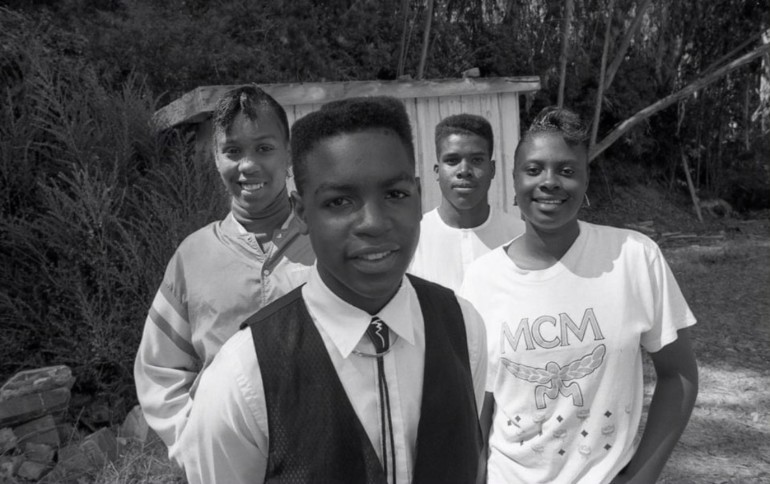Most Marin County residents have little first-hand knowledge of Marin City, the tiny hamlet of just over 3,000 people — in a county of about 260,000 — tucked into the base of the Marin Headlands east of Sausalito. Some know only the Wikipedia snapshot — Marin City was established to house 6,000 Marinship shipyard workers during World War II, it is the only predominantly Black neighborhood in Marin County, and Tupac Shakur lived there in his teens — but not much else. Almost 80 years after William and Clara Bullock moved from Louisiana and settled into the dormitory-style worker housing in the flatlands of this enclave, their grandson, Bishlam Bullock, owner of Salon B in San Rafael, spoke with us about his family’s history and his experience growing up as part of one of the original multi-generational families of Marin City.
You are a third generation Marin City resident. Tell me how your family settled here:
My grandfather, William L. Bullock, was from Monroe, Louisiana. In the early 1940s he heard there were jobs and a lot of money in the Bay Area around the shipyards that were building Liberty Ships for the war, so he came to Sausalito. He worked in the shipyard as well as various other jobs that he created on his own. One thing I want to point out is that there is an idea that everyone “decided” to move to the Bay to create a better life. Well, no, they were actually fleeing the South and a terrible life there — Jim Crow laws and racism. They were smart enough and had enough will to get the hell out of a place that was torturous for them. It just happened to be that the money was also better here as well. After seeing the opportunity here, my grandfather even went back to Monroe and brought back other families — the Halls, and his brother’s family, the Joneses. They all flourished and we are all still friends and all over Marin City today. The Harris family is a family who became friends with my grandparents here in Marin City, and we are also still interconnected with the Harris family today.
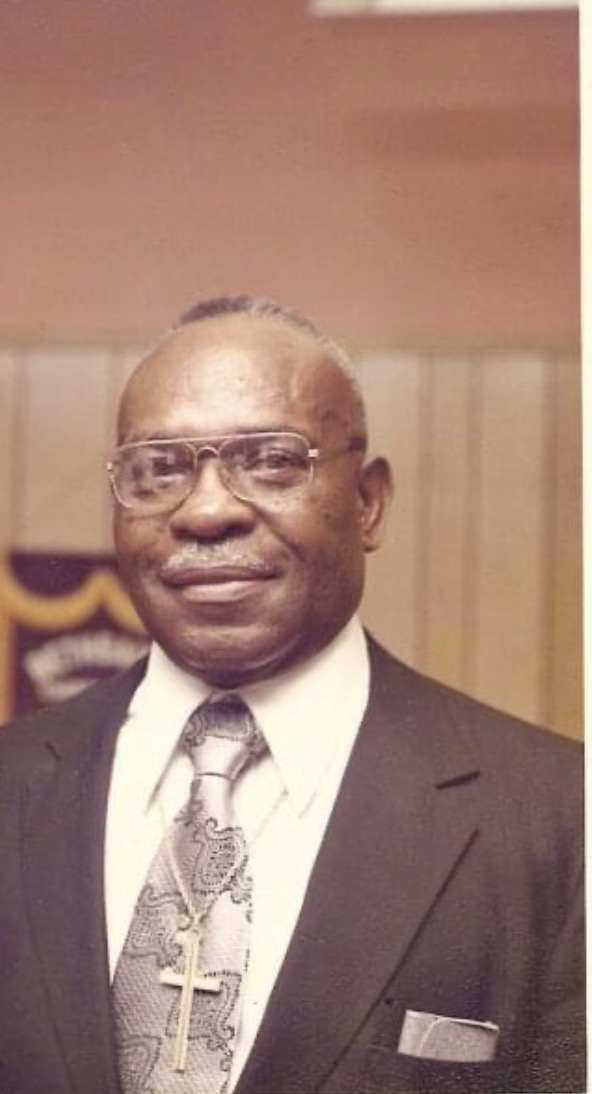
What was your grandfather like?
Well, when my grandfather came to California he was just a working guy — working and drinking, acting up. He’d go to the city, to pool halls, and drink and smoke. The story that he told my grandmother is that he got really messed up one night and passed out on some train tracks. He heard the train and got up right before the train hit him, and he said that was when he found God. He became a pastor in Marin City and started his own church, the Bethesda Church of God and Christ. My grandmother, Clara Bullock, thought he was crazy at first — she said she was going to pack up her bags and go back to Monroe. But he took her to church one day and that was when she also got saved and found God.
Where did your grandparents live?
When they first came to Marin City, the worker’s housing was dormitory style in the flats, where the Gateway Shopping Center and apartments are now. Everybody lived in those dormitories. It was a mass experiment — it didn’t matter what your race was, everybody working in the shipyard lived there and worked there. My grandparents stayed there until a developer began building homes up on the hills. My grandfather had become a pastor and he also had a janitorial service and worked as a janitor in government buildings in the city, plus a side hustle cleaning local stores and other businesses on the weekends. Through these jobs he had built his income and had enough money to put a downpayment on the Buckelew house. In fact, my grandfather had enough money to put down a downpayment on a house he was looking at in Tiburon, but he was red-lined (restricted by racist real estate covenants), so he couldn’t buy property in Tiburon or Mill Valley or anywhere other than Marin City — even though he could qualify financially. So he bought the house on Buckelew Street that is still in our family.
Tell me about your mother and her siblings.
My mother was a sweet, sweet, sweet lady who unfortunately passed away from ovarian cancer in 2012. My grandparents had six children and my mother, Terrie Bullock, was the youngest. She grew up in the house on Buckelew, and my older sister Kianga and I were raised in the Buckelew Street house. My mother graduated from Tam High and worked as a secretary for various companies. She also was the secretary of my grandfather’s church, sometimes the treasurer, and she ran various youth programs in the church.
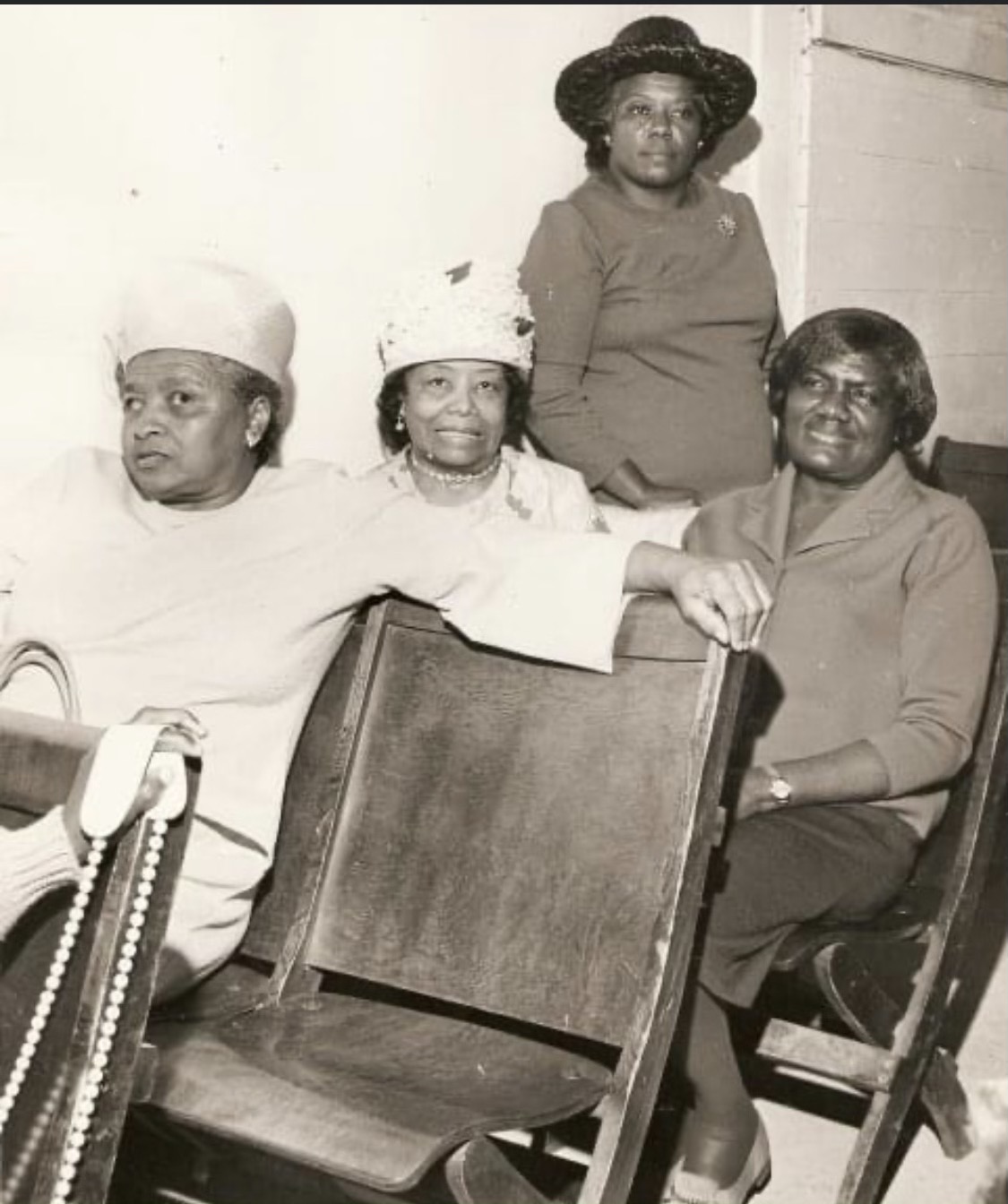
My mother’s brother, my uncle James Bullock, was a major part of my generation’s lives growing up, and he became a surrogate father after my grandfather passed away. He had gone to Tamalpais High and then studied at College of Marin and was an educated and articulate person, very well-read, a chess player and an activist. He and Walter Turner, who is now a professor of History at College of Marin, were best friends who were involved with the Marin chapter of the Black Panthers. There was a mystique about my uncle, knowing about his activities with the Black Panthers. Later, he also represented the disappointments of that era, eventually not being the best version of himself. We learned a lot from him — how to be strong and articulate and to debate, and we also learned unconditional love because he wasn’t always easy to be around. We witnessed great people, like my uncle, who battled and got bruised in that era, and became something else.
What was it like growing up in Marin City in the 1970s and ‘80s?
Marin City, for me, was an island. It was predominantly Black people and I had free rein to be and do as I pleased. I had zero fear of negative things happening to me in terms of racism. You didn’t think about scary things happening to you — you just lived there. And it was unique because I also had white friends, many of whom were “houseboat kids.” Many white kids were on the same economic level as me, or were lower income, and then some of the white kids from Sausalito were wealthy, but their parents specifically put them in school with us in Marin City so they had a liberal sensibility. It was peaceful. We played Little League and Pop Warner football and there wasn’t a question of race. Because my grandfather had done well, I was middle class, and I didn’t really know about being poor.
Was there a time when your perspective changed?
Yes, when I was young I had thought I had free rein in the whole county, but as I got older and started to go beyond Marin City, I realized things like you don’t go to Tiburon because they might pull you over just for being there. In fact, my grandfather had janitorial contracts with some of the clothing retailers in downtown Tiburon and we would go to clean at night. My job was to pick up push pins and whatnot. We used to clean at one store, a high-end clothing place that had one of those black lawn jockey statues from the South out front. I will always remember that and my grandfather being very cautious in Tiburon as we drove through at night.
Did you know Tupac Shakur?
Yes, Tupac and I went to high school together. It was a brief moment, but I knew Tupac well. I dated his sister, and I introduced Tupac to my cousin Amani who was in the rap group called 51.50. I hung out with Tupac when he first landed in Marin City. He came out from New York to stay with his godmother, Linda Pratt, who was the wife of Black Panther leader Geronimo Pratt. She worked at Tam High when I was in high school and I knew her well, so she introduced me to Tupac. He was part of street life, and he was also an academic and an artist. I will tell you, even before he became anything, when Tupac walked into a room, he commanded the stage. You couldn’t quite understand it; he had a different, unique kind of energy around him.
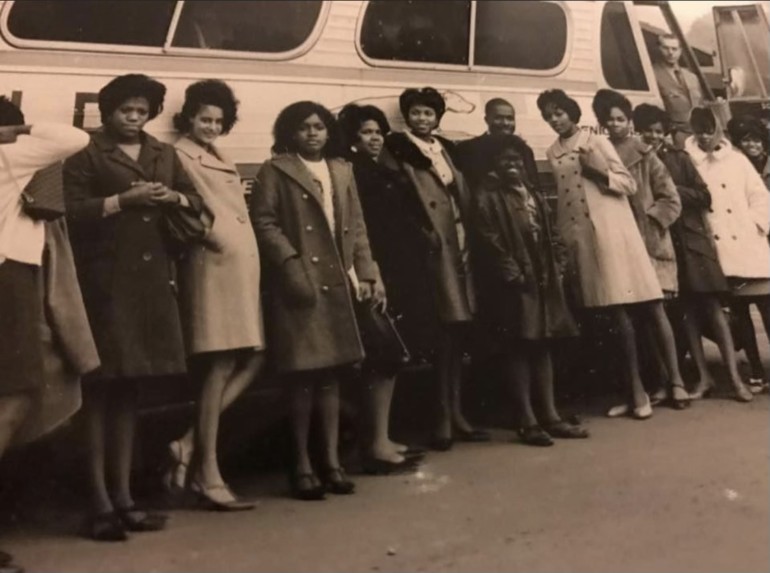
Today, as the owner of Salon B, you are the only Black-owned storefront on 4th Street in San Rafael. How did you come to own your own salon?
I have dyslexia and academics were arduous for me. I had a daughter and wanted to provide for her, so was doing any and every job — McDonald’s, Mervyn’s, car washes. I used to walk by a beauty school in San Rafael and talk to the girls, and one day one of the instructors said, “Hey, you’ve got to get out of here!” Then she said, “Have you ever thought about beauty school?” and told me about a scholarship opportunity through a regional occupational program. After I graduated I worked at DiPietro Todd for four years, and then Shylocks of 5th Avenue before I got my own small shop. I met my wife, Amy Bullock, supported her as she went through beauty school, and we opened Salon B. My mother got to see me open my business. She was super proud. She would come in and just sit in the salon sometimes.
Marin is one of the most segregated counties in the U.S. How do you reconcile the mostly wonderful life you describe growing up in Marin City with the reality of segregation and economic disparity?
The way I reconcile this is that I recognize that every Black experience is individual. The public housing, the poverty and welfare checks, just five minutes away from me in Marin City, was a different universe. Black kids in my middle class economic circumstances, we were kind of asleep to the world of racism. Our parents and grandparents sometimes put a protective shield around us because they wanted us to experience life as an individual, and pursue academics. They chose to stay in Marin because they wanted us to live in this place of beauty, surrounded by foliage and nature. They had seen so much destruction that they wanted to move beyond the Civil Rights movement. In the ’90s we were focused on Black Power and the BSU’s (Black Student Unions) were opening their doors, and we were encouraged to go to Black universities. So really, we were asleep. This was the case for me. Recently, when the George Floyd stuff happened, it was an awakening. I felt activated. I have reaped the rewards of things my parents fought for and I was asleep to terrible realities. Many of us have realized that we need to take our education and our resources and get involved and start speaking out.
How to Help
For more ways to support local businesses, go here.
For more on Marin:
- How Local Spiritual Leaders Are Adapting and Connecting with Their Communities in an Unforeseeable Year
- Looking to Get Away? Try One of These Local Work from Hotel Packages
- How to Help Hotels Survive During the Pandemic by Taking a California Work From Hotel Road Trip
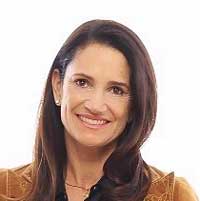 Kirsten Jones Neff is a journalist who writes about all things North Bay, with special attention to the environment and the region’s farmers, winemakers and food artisans. She also works and teaches in school gardens. Kirsten’s poetry collection, When The House Is Quiet, was nominated for the Northern California Book Award, and three of her poems received a Pushcart nomination. She lives in Novato with her husband and three children and tries to spend as much time as possible on our local mountains, beaches and waterways. For more on her work visit KirstenJonesNeff.Com.
Kirsten Jones Neff is a journalist who writes about all things North Bay, with special attention to the environment and the region’s farmers, winemakers and food artisans. She also works and teaches in school gardens. Kirsten’s poetry collection, When The House Is Quiet, was nominated for the Northern California Book Award, and three of her poems received a Pushcart nomination. She lives in Novato with her husband and three children and tries to spend as much time as possible on our local mountains, beaches and waterways. For more on her work visit KirstenJonesNeff.Com.

